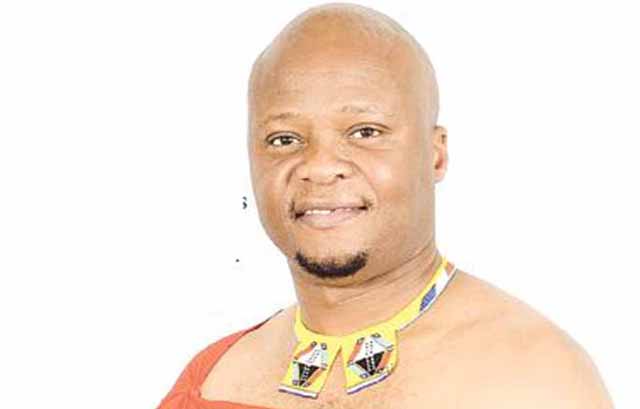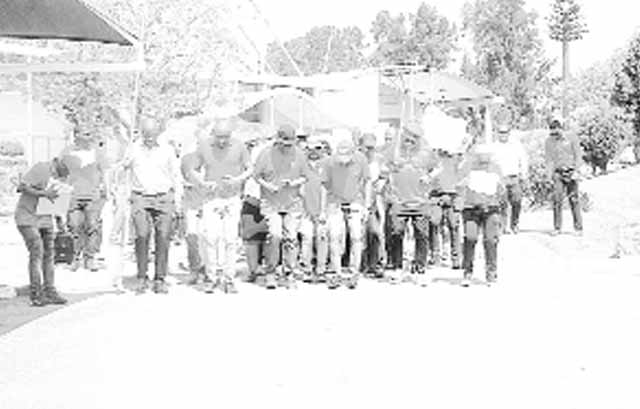By SIBUSISO DLAMINI | 2024-11-05

A prolonged delay in implementing a strategy to digitise the public procurement system has seen government continue to lose billions through mismanagement, unaccountability and bad governance.
The e-Government procurement strategy developed through the World Bank and the Eswatini Public Procurement Regulatory Agency (ESPPRA) was launched in 2020 but is still to be fully implemented four years later.
According to an ESEPARC report on the impact of procurement of sustainable development in the country, government spent E14 billion in 2018, further highlighting that electronic procurement promises many benefits.
This expenditure accounts for nearly 65 per cent of the national budget annually, representing a substantial portion of taxpayer funds.
In the current financial year alone (which began in April), nearly E2.5 billion has already been spent on procurement, according to the Ministry of finance.
Concerns over the lack of transparency in government procurement have become a focal point in discussions around corruption in the public sector, with procurement scandals cited as a key factor in the ongoing drugs shortage—demonstrating how failure in procurement can critically undermine essential services.
To curb wastage and corruption within the sector, a strategy, envisioned to save over E1 billion annually has not been implemented four years after its development, raising concerns over government commitment to eradicating corruption and ensuring accounting, in particular government procurement.
ESPPRA is the regulator in the field of public procurement in the country, and through this strategy, it was envisaged that the e-GP System would address the challenges with the public procurement processes to weed out unethical market prices, weak internal controls, fraud and corruption in public procurement.
This system would result in employing technology to automate procurement processes which has the world over been shown to increase efficiency, achieve significant cost savings while enhancing competition, effectiveness, and flexibility in the procurement process.
This was intended to bring a sweeping overhaul to procurement practices and intended to replace the country’s cumbersome manual processes with automated, transparent, and accountable procedures.
It also aimed to reserve 20 per cent of public spending for SMMEs, as efforts to level the playing field for them and ensure that they can meet the procurement criteria without compromising service quality.
The strategy outlined an end-to-end digital procurement platform designed to eliminate inflated pricing, improve market access for local businesses and reduce opportunities for fraud.
It was developed after the 2019 readiness assessment commissioned by the Africa East regional procurement manager’s office, highlighted the urgent need for an electronic system to mitigate inefficiencies and prioritise transparency.
To promote accountability, the strategy mandated independent third-party audits, ensuring compliance with international standards like the Open Contracting Data Standard (OCDS).
This standardisation would allow for the transparent reporting of procurement data, significantly curbing the opportunities for fraud and establishing a public record of procurement activities accessible to citizens and stakeholders.
Sources within the public procurement system are therefore, decrying how the initiative remains sidelined, gathering dust at Hospital Hill as corruption allegations mount, even impacting essential services like healthcare, despite government being committed to digitasing and regulating the procurement system with the strategy.
According to the sources, the strategy was crafted as a comprehensive solution aimed at reducing public procurement’s vulnerability to corruption, with key features to be included such as an integrated, secure platform that would enable transparency at every stage of the procurement process, from bidding to contract completion.
rollout
“The absence of its full rollout has left ESPPRA and government entities managing procurement under outdated practices that fall short of compliance with international standards,” said one of the sources, highlighting the lack of decisive action on one of the most significant opportunities for public sector reform.
“This is concerning because the oversight is evident across various sectors. The most prominent example has been the healthcare system, where shortages of essential drugs and supplies have disrupted service delivery,” the source added.
The executive summary of the drugs shortage report conducted by Funduzi Forensic Services, presented by Minister of Finance Neal Rijkenberg in Parliament on February alleges that irregular procurement practices and inflated costs in the ministry of health’s supply chain were among the causes of these shortages.
“Without the transparency an e-GP system could provide, tracking and rectifying these procurement missteps remains challenging,” emphasised one of the procurement experts.
The sources claim the strategy’s rigorous demands for accountability have not been universally welcomed and allege resistance from politically exposed persons with entrenched interests and relationships with suppliers with the ‘tender-preneur’ mindset.
“Sadly, this mindset (tender-preneur) focusing on short-term gains over sustainable growth, is prevalent in the country,” they said. This grievance comes at a time when ESPPRA recently warned controlling/accounting officers to comply with the Procurement Act and Regulations or face regulatory action and also encouraged supporting agencies, such as the Anti-Corruption Commission, on the need to implement stricter controls.
In response to growing public dissatisfaction and recent scandals, ESPPRA, through Chief Executive Officer, Vusi Matsebula, reiterated its zero-tolerance stance on corruption in public procurement. Matsebula read the ‘riot act,’ demanding a professional overhaul of the procurement sector to stymie the deep-rooted corruption that has weakened public trust and drained resources.
“What is currently lacking is the procurement cadre in the central government ministries and departments to perform procurement responsibilities,” Matsebula said, lamenting how procurement is currently being done by accountants, an arrangement he described as posing a significant challenge as it made it impossible to effect the corporate governance principle of separation of duties to ensure checks and balances.
According to the e-Government Procurement (e-GP) strategy, there was supposed to be a phased implementation, beginning with high-spending ministries in 2021 to offer substantial cost savings, estimated by the Organisation for Economic Co-operation and Development (OECD) to be between five per cent and eight per cent of procurement value.
It therefore, contains a laid out plan for a phased rollout across key ministries, aiming to minimise risks as each department adapted to the new system, including adaptable commercial software options, offering both standalone and software-as-a-service models to ensure flexibility for government needs.
A dedicated technical support and help desk were also planned to assist users throughout the transition.
Additionally, the strategy specified integration with existing financial and tax systems, ensuring accountability across platforms and providing a seamless flow of information to tighten control over public procurement.
share story
Post Your Comments Below

In recent years, body art, including tattoos and piercings, has undergone a notable transformatio...
Soccer- Following the immense investment in the development of local football at grassroots level...

Royal Eswatini Sugar (RES) Corporation has recorded profit of E642 million for the financ...

If the University of Eswatini Task Team wants answers to the financial collapse of the institutio...
All material © Swazi Observer. Material may not be published or reproduced in any form without prior written permission.
Design by Real Image Internet